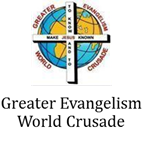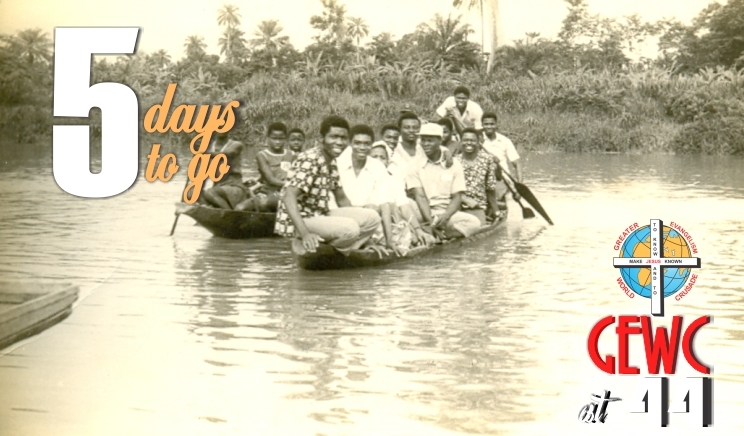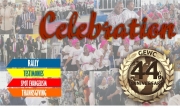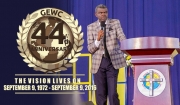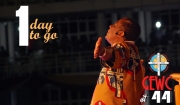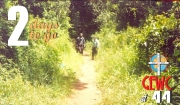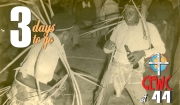OUT TO THE FIELD
Having inundated Port Harcourt with the gospel and established a bubbling fellowship there, it was now time to launch out to the deep, what Evang. Numbere termed “Field work”. The “Field” consisted of first, Port Harcourt suburbs and then the rest of the old Rivers State. But how was he to do it? Such a work required a leadership that would be definitive and constructive in its planning.Majority of the population were in the rural areas where the people lived below poverty line. They were so remote from civilization that they had no radios or televisions. The only way to preach to them was to get to them physically. He was determined to take the gospel to them no matter what it would cost him. But he was not going to be a spiritual armchair general; sitting back at home and sending others to go where he could not go himself. He was going to lead his team to places where others dared not go. He therefore decided to assemble a “Field Team” for his evangelical outreaches to the rural areas.
He also set up an Administrative team, which was to remain in Port Harcourt to man the home-front and back up the field team spiritually and financially. Not that there was much by way of finance though, for his financial supporters were mainly teenage students and the unemployed. He believed that the Church should be involved in the personal lives of people especially, the poor. His ministry was therefore not going to be based on evangelism alone. He desired to fulfill the Scriptures in every aspect of his service to God. He set up a Welfare Committee as a special unit of the Administration to enable people channel their resources to the field team and to the destitute. He then asked each and every one of his workers to pray to know which of the two groups the Lord wanted them to serve in: the field team or the home front, which he called “Base”. That name has stuck with us so that till today every Headquarters of the Ministry is called the “Base”, be it at the zonal or national level. This was in January 1973.
FULFILLING THE VISION: RURAL EVANGELISM
He got a map of the old Rivers State (now Rivers and Bayelsa States), and on 9th March, 1973, with his team of dedicated young men, women, boys and girls; he set out for a systematic evangelization of the whole area. The field team consisted of a few volunteers who were convinced that God had called them into the Field. There were only two male volunteers namely, Fubara Ibama and Nelson Orugbani (now Mpakaboari Tamunoigbani). The rest were ladies namely, Lolo George (late), Kate Bamson, Alberta Abbey, Iloye Major, and Patience Ikula. As time went on, more people joined them in obedience to the call of God. Amidst much persecution, opposition and difficulties these brave young men and women moved to every nook and cranny, to the downtrodden, underprivileged and forgotten people of the numerous islands and villages of Rivers and Bayelsa States.
It is difficult for one who does not know the topography of the Rivers and Bayelsa States to appreciate the hazards involved in those journeys. These two states are situated in the Eastern Delta of River Niger. The northern part often referred to as the upland region is made up of small towns and villages most of which are inter-spaced between thick equatorial forests. There were hardly any roads so that many of the villages were virtually inaccessible. The south, which is the Delta proper, consists of several hundred islands, with creeks running in between mangrove swamps and rivers and seas emptying into the Atlantic Ocean.
When Apostle Numbere started his missionary efforts, Nigeria was still in the immediate post-war era. Generally, the few roads that had been there had all broken down and were mere dirt tracks, which were usually muddy and impassable during the rainy season. The suburbs of Port Harcourt namely, Nkpogu, Elekahia, Rumuomasi, Rumubiakani, Rainbow Town, Rumuokwurushi and others, were not the towns they are today. They were villages and were hardly accessible. Even in Port Harcourt, the State capital, most of the roads were in a terrible state. You can imagine what it was like to travel in the State.
In the early 1970’s when Apostle Numbere set out with his team to the field, there were very few engine boats and speedboats and they could not afford to rent any since they had no money. They had no money, they had no sponsor, they hardly had any clothes, no vehicles, not even a bicycle, and he knew nobody in those villages. They moved out by faith, travelling for three months at a stretch, spending at least one week in every village. They carried no beds with them. All he could afford were two mats, one for the men and one for the ladies. The two mats were insufficient for them and to create sleeping space for all they had to lie not lengthwise but across the mat with their heads and trunks on the mat while their legs stuck out on the bare ground or floor.
At that time spiritually, Rivers State was a region where the powers of darkness reigned supreme, so they were in for a stiff battle. Apostle Numbere and his team had no manuals on spiritual warfare, they had nothing by way of physical comfort but they had one thing–they had a Vision and they had faith in the One that gave them the Vision. Willing to die for the gospel, Numbere and his team faced many hazards working night and day, under rain and sun, trekking through forests and mangrove swamps with their loads on their heads, travelling in hand-pulled dug-out canoes and open-boats, daring the winds and waves of the sea, and fearing neither man nor beast. Sometimes they had to trek through dried up creeks to reach a village, only to return to a swelling creek from an inflowing tide. That meant they had to wade or swim across depending on the water level. They never cared about whether the weather was conducive or inclement for their travels or crusades. Sometimes the devil tried to use elements of the weather such as lightning to attack but God always delivered them. They had power and authority over the elements of the weather, such that if rain or storm or wind or waves came up against them during their Crusades or in their journeys, they would stand and face that weather, and rebuke it. Those elements would obey them and stop and then they would continue with their crusade or journey. Their exercising such authority with resultant effects led to the conversion of many.
The situation was worse in the riverine areas. Transportation was still very much clumsy and expensive like it was in Numbere’s childhood days. There were no bridges linking one island to the other so that the only means of transportation was by water using hand pulled canoes. A few years later came the era of speedboats which are still available till date. But these speedboats are nowhere near the boats used in technologically advanced countries. The Nigerian speedboats are open boats and whenever it rains, passengers are covered with a big tarpaulin (canvass) sheet while the driver puts on a raincoat and stands in the rain to manoeuvre the boat. Those sitting at the sides of the boat would then hold the sheet down while the rest of the passengers would push it up with their hands so that they would not suffocate. They would then travel covered up like cargo and at the mercy of the driver, the only one seeing where they are going.
They often had to trek for miles to streams or water holes, which served as sources of water supply for both human beings and wild animals. The people would go to fetch water in the early hours of the morning or in the afternoon while wild animals would come at night to drink the water. Sometimes as in Nonwa, there were only shallow wells of muddy or slimy water. In some places there was no water except the salty sea water in which case they would pray over it, then drink it, use it to cook, bathe and wash their clothes. To enable them drink it, they would add a little orange squash to the sea water. They drank from these sources without fear believing that God would protect them from water borne diseases, and He did.
They had little or no victuals to sustain their lives. They only had meals when the Lord provided. Many a time they had to go without food and such periods they converted into fasting and prayer time. God did not allow them to die of starvation.
Numbere had to go through all these difficulties to take the gospel to his people.
Culled from "A Man and A Vision" by Nonyem E. Numbere. For inquiries, visit our bookshop.

